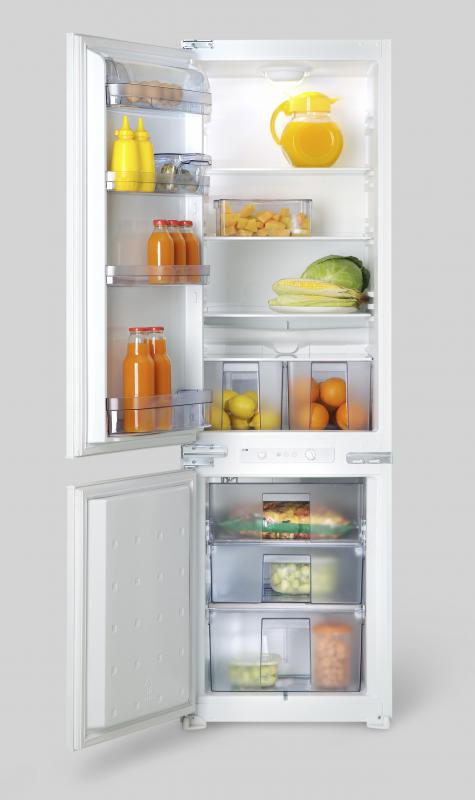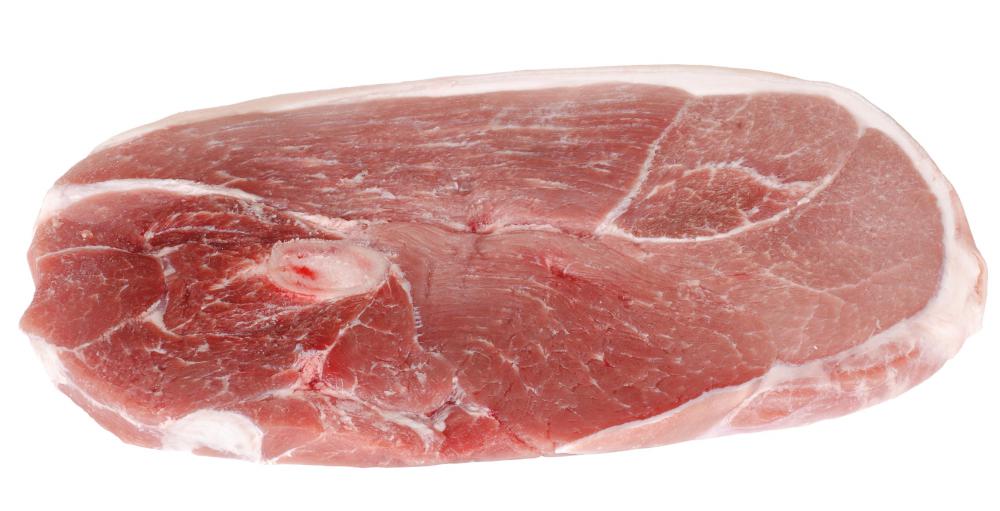At DelightedCooking, we're committed to delivering accurate, trustworthy information. Our expert-authored content is rigorously fact-checked and sourced from credible authorities. Discover how we uphold the highest standards in providing you with reliable knowledge.
What is Raw Vegan Food?
The vegan diet contains absolutely no animal products, including eggs, dairy, and honey. Raw vegan food is not heated to over 118 degrees Fahrenheit (47.8 degrees Celsius). Some foods include nuts, salad, fruit and soy products. Many who are on a raw vegan diet also abstain from any foods that are processed or treated with chemicals such as pesticides. Some who eat a raw vegan diet choose the diet for health reasons, while others may be motivated by environmental concerns or animal rights issues.
A vegan diet is different than a vegetarian one because no animal products are allowed at all. A vegetarian may eat cheese, eggs or anything else that is derived from an animal. Their main restriction in their diet is a lack of animal meat. Many vegans and vegetarians believe that eating animals is inhumane. Raw vegans take this a step further by stating that prepared food is also bad, as it damages the environment and pollutes the food with toxic preservatives and chemical agents. Some also believe that the very act of cooking is bad for the environment, that it is a wasteful use of fossil fuels that contributes to deforestation and other practices that destroy wildlife.

Those who prescribe to a raw vegan food diet also believe that the act of eating raw food helps promote weight loss and a healthy lifestyle. They say that the act of cooking food, even if it is already organic vegan food, burns away natural nutrients in the food. Many vegan diet plans, and even some non-vegan ones, include raw food recipes because of this belief.

The types of raw food that may be part of raw food recipes include nuts, such as almonds and cashews, soy products and various vegetables. Salads are very common vegan lunches and dinners, while granola, fruit or soy-based food may serve as a raw vegan breakfast. Raw vegan food can also include deserts such as fruit smoothies. Soy-based vegan "meat" may be used, as long as it is not processed. Other foods that are compatible with a raw vegan food diet include seaweed, seeds and many different kinds of noodles.

Like any other diet that excludes meat, those who eat solely a raw vegan food diet must take special care that they get the right vitamins and proteins that are absent in many vegetables, fruits and grains. A diet that consists solely of raw vegan food may be severely lacking in vitamin B12, which is not common in plant foods. A vitamin B12 deficiency can lead to health problems such as anemia. Many vegans take vitamins to compensate for the lack of B12 in their food.
AS FEATURED ON:
AS FEATURED ON:



















Discussion Comments
@MrsPramm - I'd also like to point out that cruelty-free for animals doesn't necessarily mean cruelty-free for people. There are a lot of products, like quinoa, which are considered vegan staples, but which are produced in very unethical ways that harm people.
I have a lot of respect for my friends who are raw food vegans but I know they take a lot of time to trace the origins of their food (and grow their own) so that they know for certain that it's ethically sourced.
@clintflint - The thing is, I know they try to advocate that cooking food removes nutrients, and that's the case sometimes, but in a lot of foods cooking actually releases nutrients that aren't going to be available otherwise. This is particularly true when it comes to energy.
The reason humans are able to support big brains and not spend the entire day eating is partly because we cook our food. And we don't have the stomach architecture to break down raw plant material that herbivorous animals do.
There are a lot of very good reasons to want to cut down on meat and other animal products, but raw vegan foods aren't automatically going to be good for you. I personally think that the majority of humanity would be better off finding a compromise somewhere in between total vegan and total glutton.
Raw food can be very good for you, but you've got to be prepared to do your research so that you get enough nutrients. Oatmeal, for example, is often a staple for those on a raw diet, but few people realize that it actually has compounds that can block the absorption of iron and other minerals if it is eaten raw.
Soaking can get rid of these compounds for most grains, but oatmeal is an exception, so you either have to soak it in a mixture with other grains, or go easy on eating it every day. Iron isn't particularly easy to get into a raw food vegan diet anyway, so the last thing you want is to block the absorption of what you are getting.
Post your comments